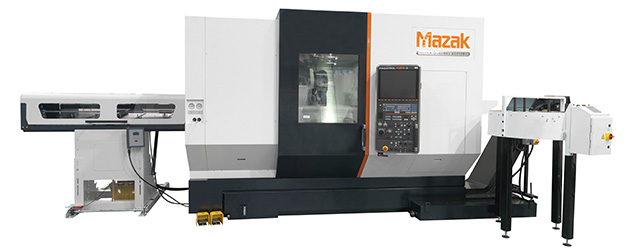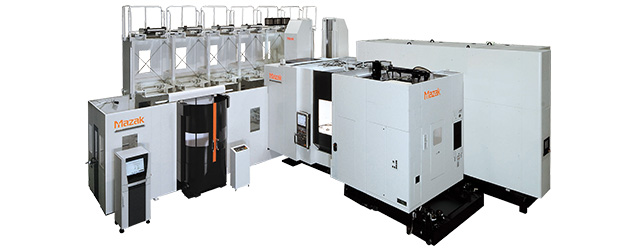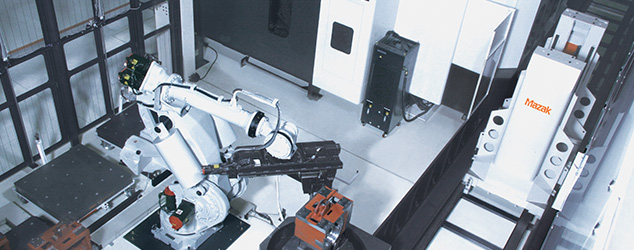Automation
Automation can enhance your productivity through increased machine tool utilization. However, to reap the significant competitive advantages that coincide with automation, you must efficiently and effectively integrate it into your operations.
We are a single source provider for all your automation needs. And to ensure you have the right level of automation for your facility, we have developed “4 Levels of Automation,” which represents the “4” in our comprehensive “3-4-5 Manufacturing Solution.”
Level 1
Level 1 - Bar Feeders

Bar feeders offer immediate increases in productivity. However, while they are a basic form of automation, it’s important to select the right one to ensure you achieve increased material utilization as well as gain the highest levels of productivity, throughput and quality from your turning operations.
Level 2
Level 2 - Gantry Loaders

Gantry loaders provide fast, high-production loading and unloading. They bring more versatility, flexibility and productivity when managing chuck and shaft work by offering a variety of loading stations and robotic hands. Gantry loader systems are easy to install and operate, providing a quick, turnkey system that results in immediate increases in productivity.
Level 3
Level 3 - PALLETECH Automation Systems

Offering amazing production flexibility, our PALLETECH system brings high levels of efficiency to high-mix, low-volume production as well as high-volume operations. Compatible with our range of horizontal machining centers, Multi-Tasking machines and ORBITEC 20 machining center for large parts, the PALLETECH is available in single, double and triple level pallet stocker configurations. Because of its modular, pre-engineered construction, PALLETECH easily expands along with your growing business. In fact, it can accommodate up to 16 machines, 6 to 240 pallets and up to 8 loading stations.
Level 4
Level 4 - Articulating Robots

A highly advanced alternative to traditional production, articulated robots provide automation for one or multiple machines as well as part transfers to peripheral operations. They also eliminate the challenges that come with handling large, heavy or cumbersome parts. Articulated robots use rotary joints to achieve an increased change of motion. From simple 2-joint robots to complex 10-joint robots, you have the power to choose just how much range of motion is necessary to gain the competitive advantage.
